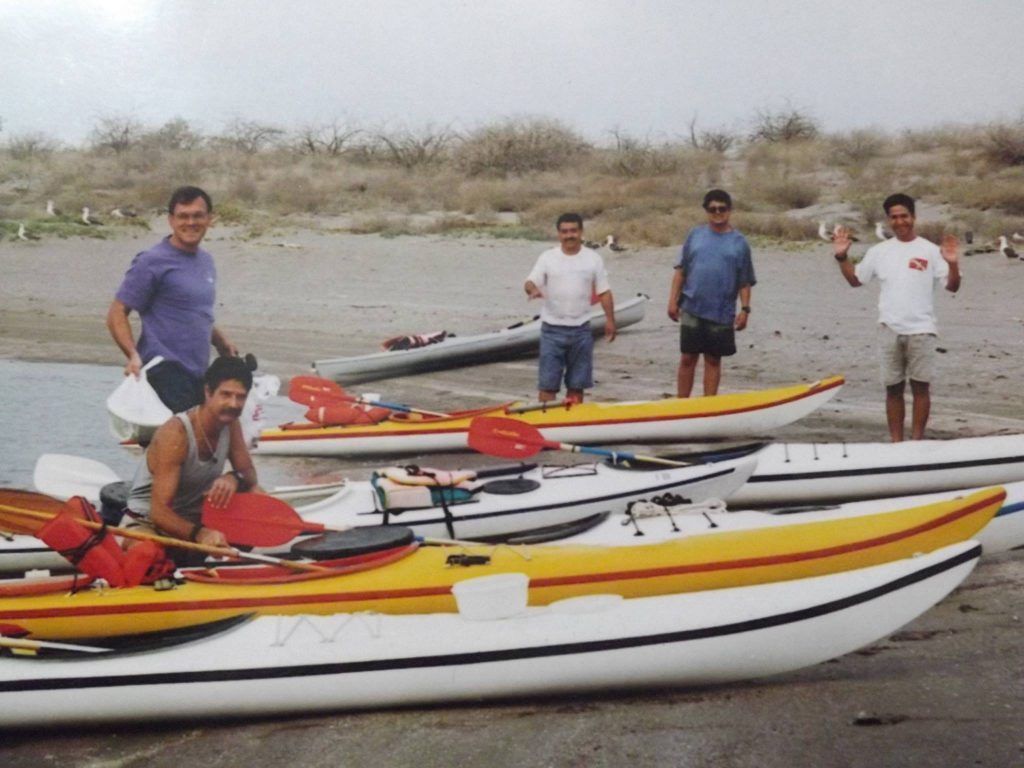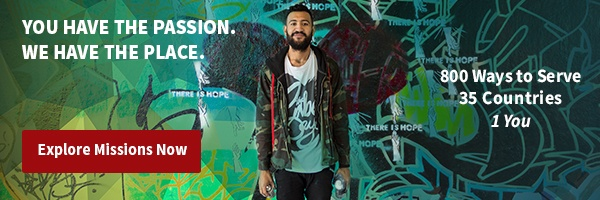What is your passion? What is the thing you get most excited about? The thing you would be doing if all your dreams came true?
Whatever it is, Steve Dresselhaus guarantees you can turn it into a ministry — and he should know. For over a decade, the TEAM missionary has led people to the Lord, discipled new believers, counseled couples and more, all while kayaking on the beautiful Sea of Cortez in Mexico.
Steve actually started kayaking as a way to escape mission work. In 1996, the pastor was burnt out to the point that he sent TEAM his resignation letter. He and his wife, Lois, would finish their term in the Mexican city of La Paz, and then they were going home.
But that Christmas, Lois bought Steve a kayaking trip with a local outfitter. Steve loved it so much that he bought a used kayak the next day and started going regularly as an escape from the pressures he felt.
One day, he decided to take a friend, and to his surprise, Steve got to share the gospel.
“I can even recall how he opened up the conversation as we drifted side by side in Balandra Bay,” Steve says. “That was truly an amazing beginning as I saw God working in a new way.”

The first group outing of Steve’s kayaking ministry in La Paz.
Steve started inviting more people to go kayaking with him and taking them scuba diving, too. As word spread, the pastor’s hobby became a major ministry with 12 kayaks and a trailer. He could take whole youth groups out for the day.
“Once it got going, there’s no way you’re going to get me to leave TEAM,” Steve says.
God, the Good Steward
As much as the ministry’s progression took Steve by surprise, he sees it as a perfect fit with God’s nature: If God tells us to be good stewards, he explains, God must be a good steward himself.
“I believe that during our life, as we’re growing up, … as we’re maturing, God is investing in us with passions, desires, special giftedness, and I think he expects a return on that investment,” Steve says.
When he speaks to youth groups, he gives teenagers a 3×5 card and a pencil and tells them to write down what they’d be doing in 10 years if all their dreams came true. They turn in the cards, and Steve helps them come up with a ministry that could come out of their dreams.
Steve can’t remember a time when he didn’t love the ocean, and now he can see part of why God gave him that love.
Space for Shy People
Kayaking creates openings for the Gospel in a number of ways. One woman was fascinated by the names of Steve’s boats; each one was a fruit of the Spirit. She asked a Christian friend about the names’ meanings and soon came to the Lord.
Out on the ocean, the stunning water, rocks and animals naturally lead to discussions about the one who created them.
But one of the most significant things that opens doors is having blocks of uninterrupted time. With an hour of driving time and about three hours on the water, Steve’s kayaking trips give people space to get comfortable with small talk and then ease into deeper matters.

Long blocks of time and picturesque views organically prompt conversation about the God who created it all.
Steve finds this is especially true for the men of La Paz, who are often shy about opening up. Out on the ocean, drifting side by side, kayakers can ask a question and paddle away or simply sit in silence as they ponder the discussion.
One man was sent to the hospital after overdosing on drugs. When he got out, he began searching for help and decided to look up “the kayaking pastor” he had heard about. He and Steve began to kayak together frequently, and gradually, the man opened his heart to the Lord.
Attractive Missionaries
In 2009, TEAM asked Steve to take on a leadership role that he performed in the U.S. until 2015, when he realized he could do the job remotely. He and Lois moved back to La Paz, and Steve started kayaking again. This summer, he had a waiting list of people who wanted him to take their family member kayaking and talk to them about God.
After 10 years, Steve is well-known enough that many of his kayaking partners come to him by word of mouth. But he has also joined other kayaking groups and beach clean-up campaigns that have put him in touch with people he wouldn’t meet otherwise — professors, scientists, environmentalists and even government workers.
At a tenure party, one professor introduced Steve to his friends by saying, “This is my friend Steve. He taught me to kayak, he taught me to scuba dive, and now he is teaching me about God.”
It’s notable that God came last in the introduction. Steve says people are often attracted to missionaries before they are attracted to the message, “but some of us get so entrenched and so stuck on our work that we become shallow people, and our lives aren’t attractive.”
Having a passion outside of his work as a pastor has opened doors Steve never expected and allowed the gospel to spread far beyond his church walls.
As he gets the ministry back into gear, Steve still has challenges ahead — like finding a truck to haul his kayaks and deciding how much he should grow the ministry — but he is excited to see what God will do.
And while he takes more people out on the sea, he hopes other missionaries will look for similar opportunities to find hobbies to be passionate about, get good at and use to the glory of God.





















